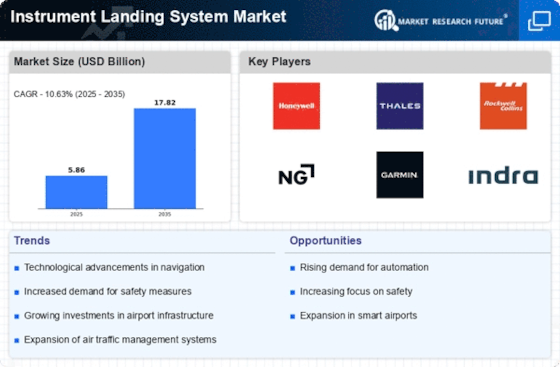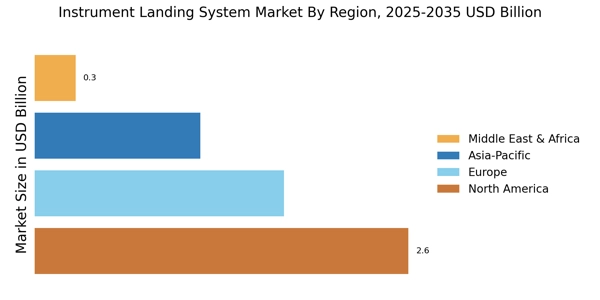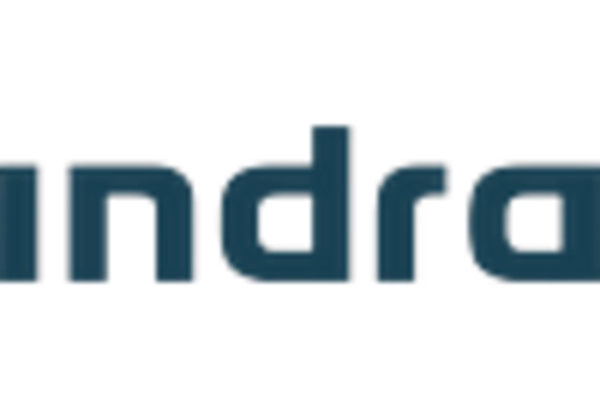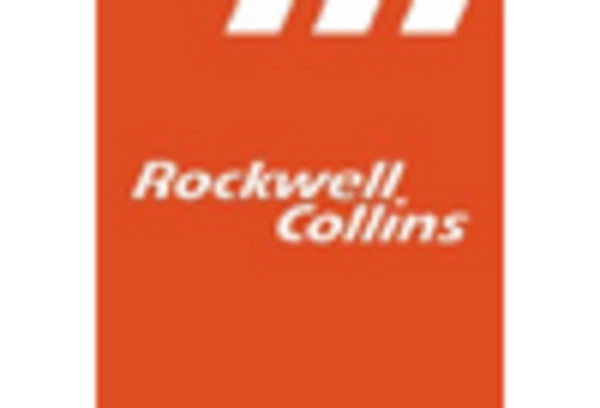Growing Demand for Air Travel
The Instrument Landing System Market is poised for growth due to the increasing demand for air travel. As more passengers opt for air transportation, airlines are expanding their fleets and routes, necessitating the installation of advanced landing systems. Projections suggest that air traffic will grow at an annual rate of 4% over the next decade, leading to a corresponding rise in the need for efficient landing solutions. This trend underscores the importance of instrument landing systems in ensuring safe and timely arrivals, thereby driving market expansion.
Emerging Markets and Regional Development
The Instrument Landing System Market is witnessing growth in emerging markets, where regional development is fostering the establishment of new airports. Countries in Asia and Africa are investing in aviation infrastructure to support economic growth and tourism. This trend is expected to create a demand for modern instrument landing systems, as new airports require advanced technologies to ensure safety and efficiency. Market analysts predict that the expansion of airport networks in these regions could lead to a 20% increase in instrument landing system installations by 2030, highlighting the potential for growth in the industry.
Increased Investment in Airport Infrastructure
The Instrument Landing System Market is benefiting from increased investment in airport infrastructure worldwide. Governments and private entities are allocating substantial funds to modernize airport facilities, which includes upgrading landing systems. Recent reports indicate that airport infrastructure spending is expected to reach USD 100 billion by 2026, with a significant portion directed towards enhancing instrument landing systems. This influx of capital is likely to stimulate market growth, as airports seek to improve their operational capabilities and accommodate the rising number of air traffic.
Regulatory Changes and Compliance Requirements
The Instrument Landing System Market is significantly influenced by regulatory changes and compliance requirements imposed by aviation authorities. Stricter safety regulations and standards are driving airports and airlines to upgrade their landing systems to meet these mandates. For instance, the International Civil Aviation Organization (ICAO) has established guidelines that necessitate the implementation of advanced landing systems in new airport projects. This regulatory push is likely to result in a market growth rate of around 10% annually as stakeholders invest in compliant technologies to enhance operational safety and efficiency.
Technological Advancements in Navigation Systems
The Instrument Landing System Market is experiencing a surge in technological advancements, particularly in navigation systems. Innovations such as satellite-based augmentation systems (SBAS) and ground-based augmentation systems (GBAS) are enhancing the precision and reliability of landing procedures. These advancements are expected to improve safety and efficiency in air traffic management. According to recent data, the integration of advanced technologies is projected to increase the adoption of instrument landing systems by approximately 15% over the next five years. This trend indicates a growing reliance on sophisticated navigation aids, which are crucial for modern aviation operations.

















